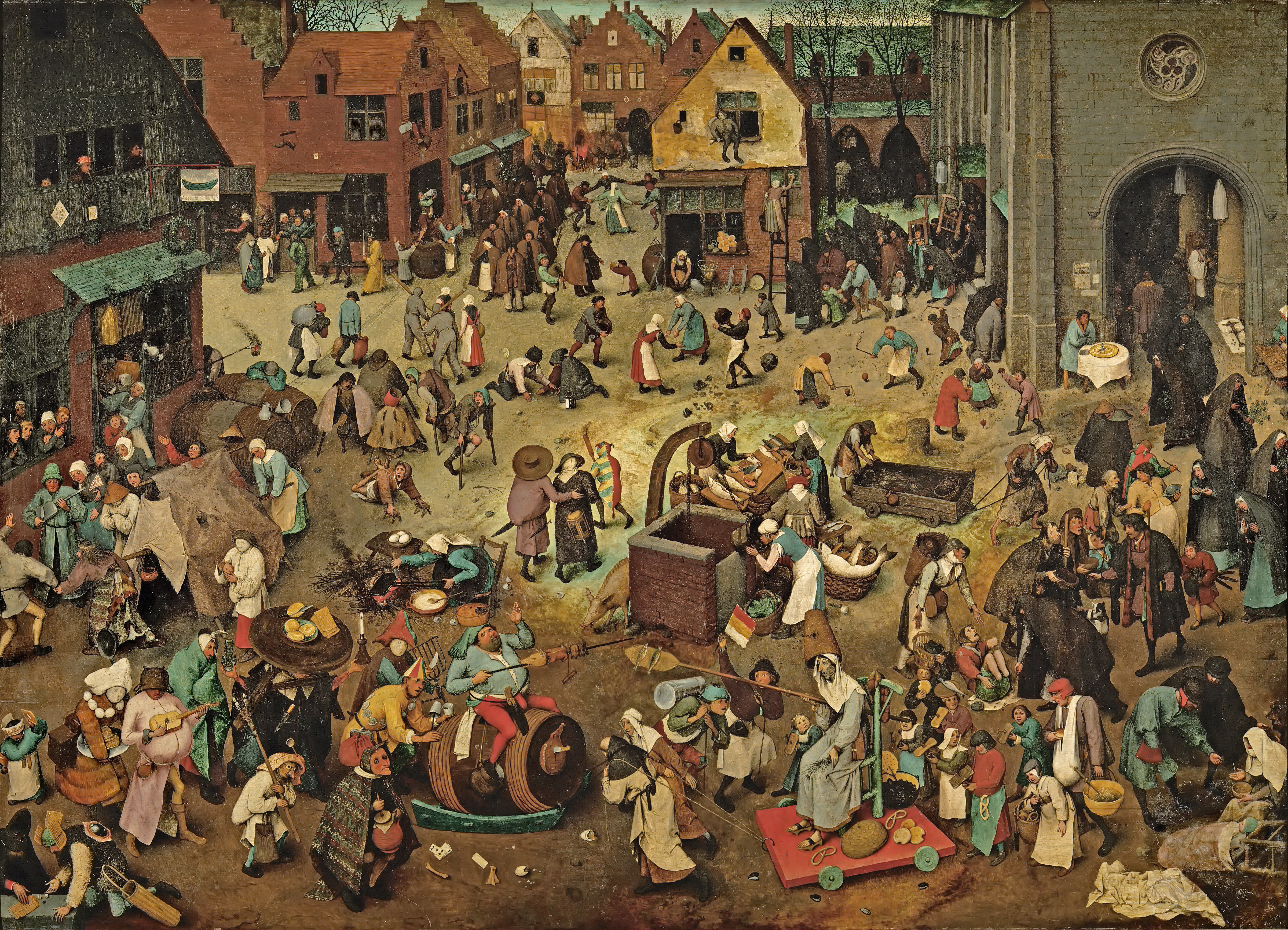text2tags
The model has been trained on a collection of 28k news articles with tags. Its purpose is to create tags suitable for the given article. We can use this model also for information-retrieval purposes (GenQ), fine-tuning sentence-transformers for asymmetric semantic search.
If you like this project, consider supporting it with a cup of coffee! 🤖✨🌞

Pieter Bruegel the Elder, The Fight Between Carnival and Lent, 1559
Usage
Sample code with an article from IlPost:
from transformers import AutoTokenizer, AutoModelForSeq2SeqLM
model = AutoModelForSeq2SeqLM.from_pretrained("efederici/text2tags")
tokenizer = AutoTokenizer.from_pretrained("efederici/text2tags")
article = '''
Da bambino era preoccupato che al mondo non ci fosse più nulla da scoprire. Ma i suoi stessi studi gli avrebbero dato torto: insieme a James Watson, nel 1953 Francis Crick strutturò il primo modello di DNA, la lunga sequenza di codici che identifica ogni essere vivente, rendendolo unico e diverso da tutti gli altri.
La scoperta gli valse il Nobel per la Medicina. È uscita in queste settimane per Codice la sua biografia, Francis Crick — Lo scopritore del DNA, scritta da Matt Ridley, che racconta vita e scienza dell'uomo che capì perché siamo fatti così.
'''
def tag(text: str):
""" Generates tags from given text """
text = text.strip().replace('\n', '')
text = 'summarize: ' + text
tokenized_text = tokenizer.encode(text, return_tensors="pt")
tags_ids = model.generate(tokenized_text,
num_beams=4,
no_repeat_ngram_size=2,
max_length=20,
early_stopping=True)
output = tokenizer.decode(tags_ids[0], skip_special_tokens=True)
return output.split(', ')
tags = tag(article)
print(tags)
Longer documents
Assuming paragraphs are divided by: '\n\n'.
from transformers import AutoTokenizer, AutoModelForSeq2SeqLM
import itertools
import re
model = AutoModelForSeq2SeqLM.from_pretrained("efederici/text2tags")
tokenizer = AutoTokenizer.from_pretrained("efederici/text2tags")
article = '''
Da bambino era preoccupato che al mondo non ci fosse più nulla da scoprire. Ma i suoi stessi studi gli avrebbero dato torto: insieme a James Watson, nel 1953 Francis Crick strutturò il primo modello di DNA, la lunga sequenza di codici che identifica ogni essere vivente, rendendolo unico e diverso da tutti gli altri.
La scoperta gli valse il Nobel per la Medicina. È uscita in queste settimane per Codice la sua biografia, Francis Crick — Lo scopritore del DNA, scritta da Matt Ridley, che racconta vita e scienza dell'uomo che capì perché siamo fatti così.
'''
def words(text):
input_str = text
output_str = re.sub('[^A-Za-z0-9]+', ' ', input_str)
return output_str.split()
def is_subset(text1, text2):
return all(tag in words(text1.lower()) for tag in text2.split())
def cleaning(text, tags):
return [tag for tag in tags if is_subset(text, tag)]
def get_texts(text, max_len):
texts = list(filter(lambda x : x != '', text.split('\n\n')))
lengths = [len(tokenizer.encode(paragraph)) for paragraph in texts]
output = []
for i, par in enumerate(texts):
index = len(output)
if index > 0 and lengths[i] + len(tokenizer.encode(output[index-1])) <= max_len:
output[index-1] = "".join(output[index-1] + par)
else:
output.append(par)
return output
def get_tags(text, generate_kwargs):
input_text = 'summarize: ' + text.strip().replace('\n', ' ')
tokenized_text = tokenizer.encode(input_text, return_tensors="pt")
with torch.no_grad():
tags_ids = model.generate(tokenized_text, **generate_kwargs)
output = []
for tags in tags_ids:
cleaned = cleaning(
text,
list(set(tokenizer.decode(tags, skip_special_tokens=True).split(', ')))
)
output.append(cleaned)
return list(set(itertools.chain(*output)))
def tag(text, max_len, generate_kwargs):
texts = get_texts(text, max_len)
all_tags = [get_tags(text, generate_kwargs) for text in texts]
flatten_tags = itertools.chain(*all_tags)
return list(set(flatten_tags))
params = {
"min_length": 0,
"max_length": 30,
"no_repeat_ngram_size": 2,
"num_beams": 4,
"early_stopping": True,
"num_return_sequences": 4,
}
tags = tag(article, 512, params)
print(tags)
Overview
- Model: T5 (it5-small)
- Language: Italian
- Downstream-task: Summarization (for topic tagging)
- Training data: Custom dataset
- Code: See example
- Infrastructure: 1x T4
- Downloads last month
- 226